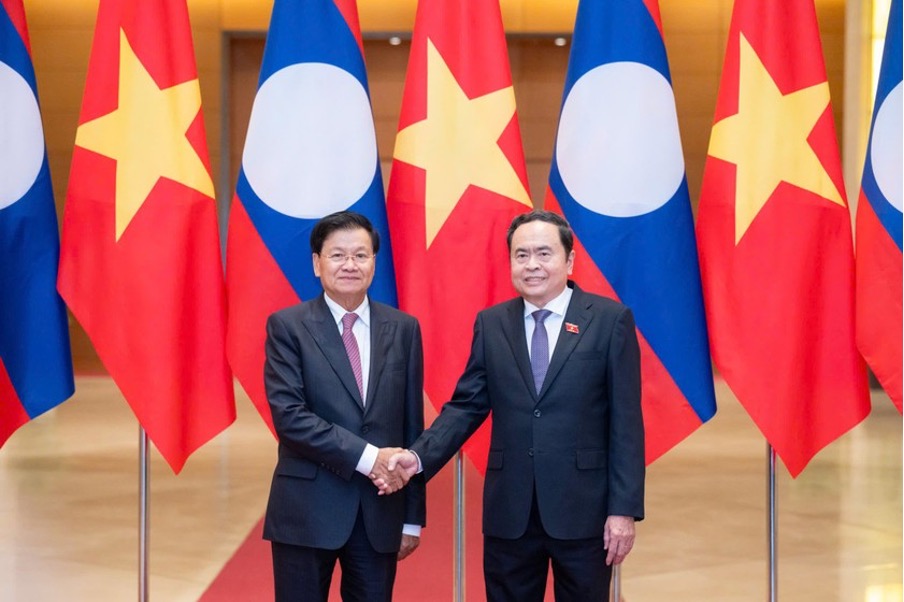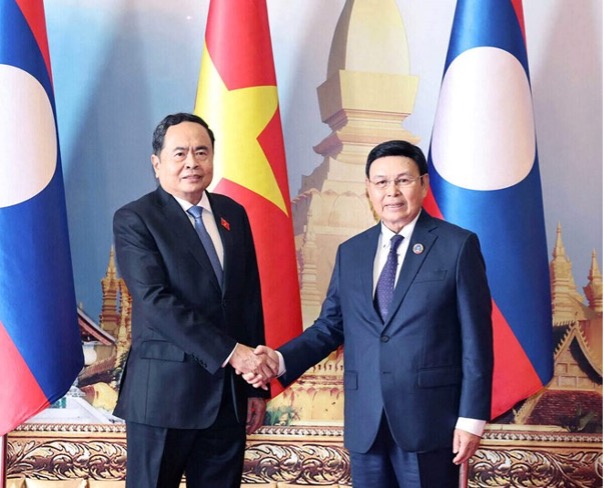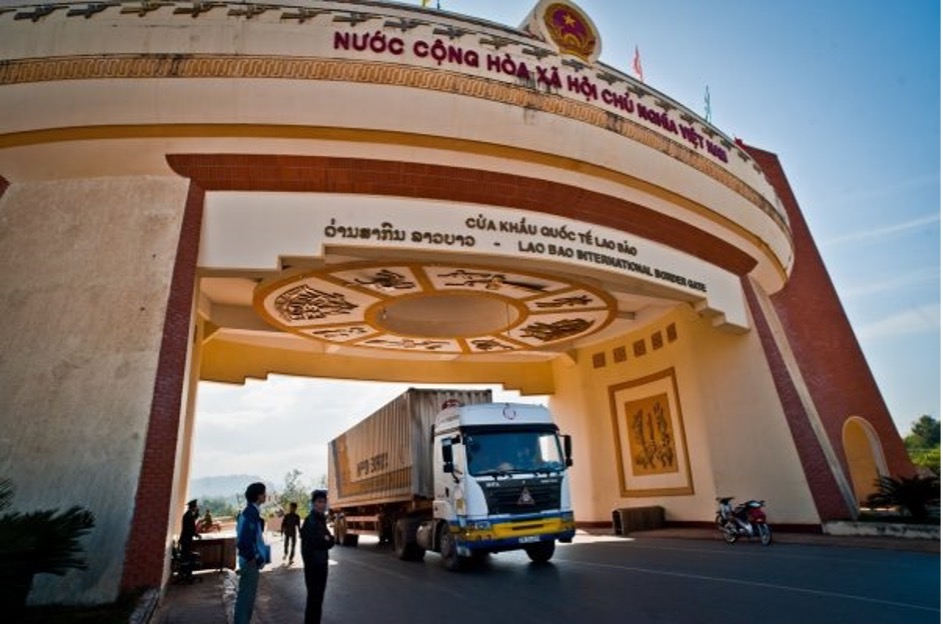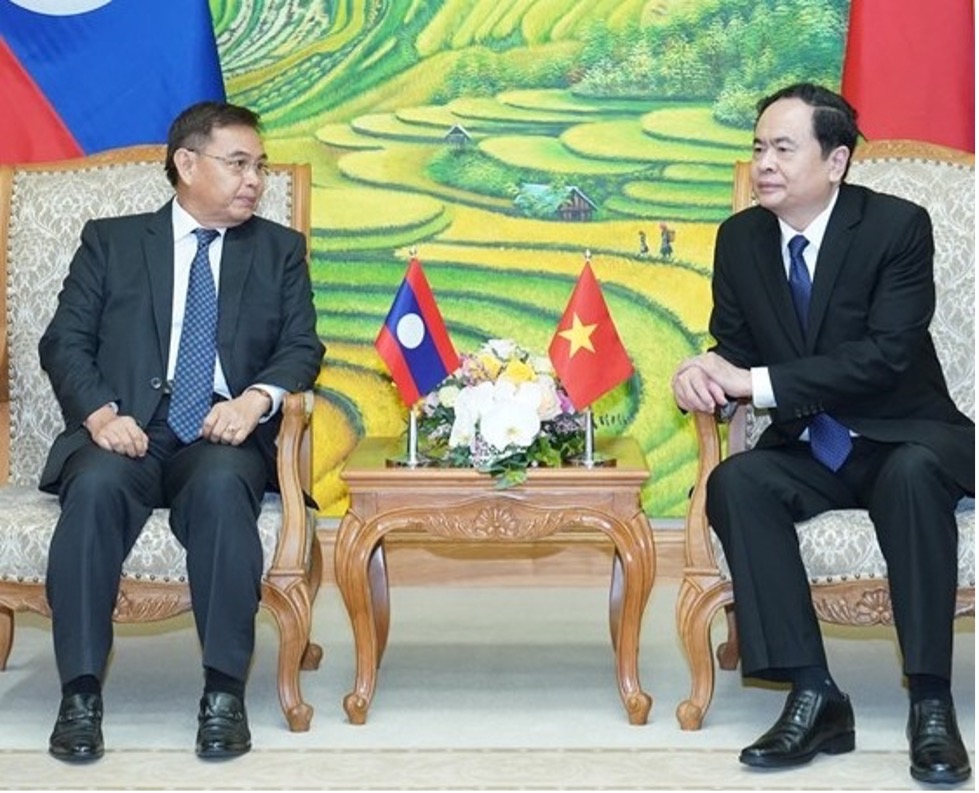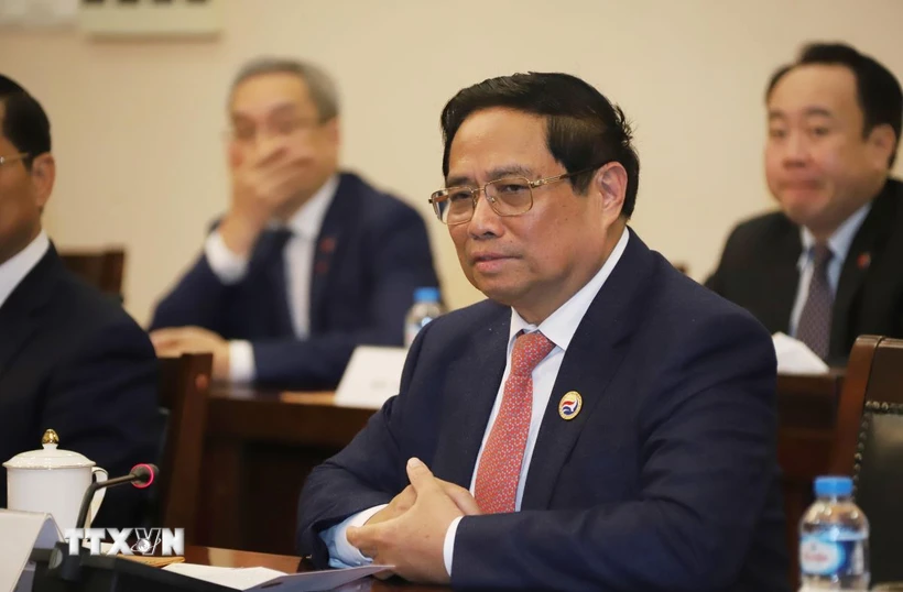MOIT VIETNAM | ACTIVITIES
-
/ News / Activities
Taking Vietnam-Laos Cooperation to New Heights as a Global Diplomatic Model
On the occasion of Chairman of the National Assembly Tran Thanh Man leading a high-level delegation of the Vietnamese National Assembly on an official visit to the Lao People's Democratic Republic and attending the 45th General Assembly of the ASEAN Inter-Parliamentary Assembly (AIPA-45) from October 17 to 19, 2024, the Vietnamese Ambassador to Laos, Nguyen Minh Tam, gave an interview to the Vietnamese press stationed in Laos.
-
/ News / Activities
National Assembly Chairman Tran Thanh Man Holds Talk with the President of the Lao National Assembly
The cooperative relationship between the legislative agencies of Vietnam and Laos is experiencing significant positive developments in both breadth and depth.
-
/ News / Activities
Untapped Potential for Growth in Vietnam-Laos Border Trade
To promote the development of border trade between Vietnam and Laos, future efforts should be based on market demand for the key import and export commodities of both countries.
-
/ News / Activities
Vietnam and Laos Strengthen Parliamentary Ties for Deeper Cooperation
On October 15, 2024, Vietnamese Ambassador to Laos, Nguyen Minh Tam, shared insights with the Vietnam News Agency about the deepening partnership between the National Assembly of Vietnam and the National Assembly of Laos. This interview coincided with the official visit of Tran Thanh Man, Chairman of the National Assembly of Vietnam, to Laos from October 17 to 19, 2024. The visit also included his participation in the 45th General Assembly of the ASEAN Inter-Parliamentary Assembly (AIPA-45).
-
/ News / Activities
Prime Minister: The comprehensive cooperation relationship between Vietnam and Laos is unparalleled in the world
Prime Minister Phạm Minh Chính Suggests Continued Education and Nurturing of Relations between Vietnam and Laos



